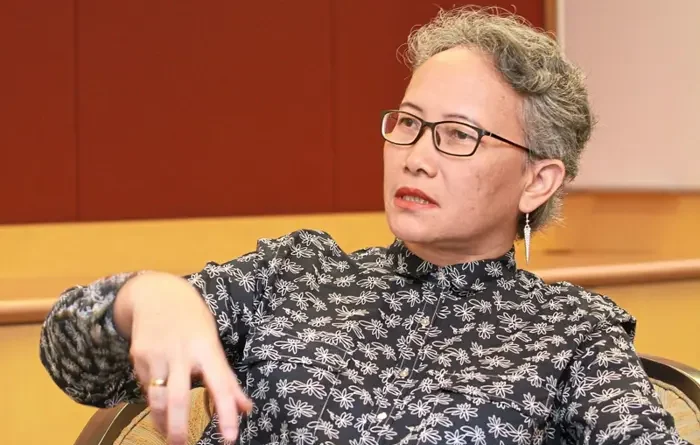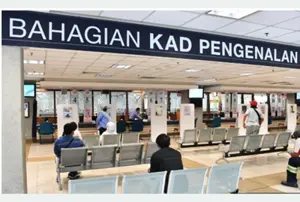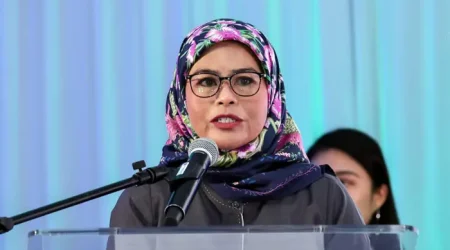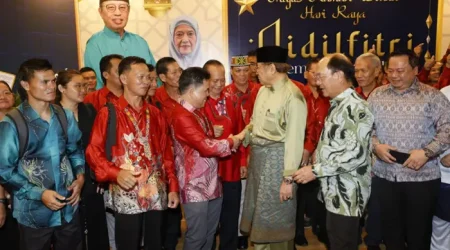No division in vernacular schools
PETALING JAYA: Public schools in Malaysia are instruments of harmony, with vernacular schools being one of the drivers of unity, say parent and education groups.
Parent Action Group for Education (PAGE) chairman Datin Noor Azimah Abdul Rahim said Malaysians are united, and in school, different cultures are celebrated and respected.
“Despite being a target, vernacular schools have surprisingly been the magnet for unity in a pluralistic system,” she said.
 Noor Azimah was of the view that more can be done for unity by making the Dual Language Programme (DLP) less restrictive.
Noor Azimah was of the view that more can be done for unity by making the Dual Language Programme (DLP) less restrictive.
The DLP gives pupils the option to study Science and Mathematics in English or Malay.
“The DLP unites pupils and gives them access to global STEM (science, technology, engineering and mathematics) knowledge in order for Malaysia to become a high-income nation,” she said.
Vernacular schools have stepped in to provide alternative options for students who are unable to secure DLP spots in national schools, Noor Azimah added.
She also commended the #MZB365 campaign as an exemplary effort by peace-loving Malaysians for a fair chance at prosperity for all.
The “Maaf Zahir Batin Hari Hari” (#MZB365) campaign was launched on April 6 with support from major media organisations and civil society organisations.
Melaka Action Group for Parents in Education (Magpie) chairman Mak Chee Kin said vernacular schools are fostering inclusivity.
“Those who are criticising should go to the schools and see for themselves.
“In reality, no one is discriminated against there.
“Prayer rooms are given, and Hari Raya is celebrated in these schools,” he said, adding that further evidence comes from the increasing number of non-Chinese pupils at these schools.
Educationist group United Chinese School Teachers’ Association (Jiao Zong) chairman Cheah Lek Aee said that 20% of the pupils in Chinese vernacular schools were non-Chinese.
“More and more non-Chinese children are studying in Chinese primary schools,” he said.
This shows that vernacular schools are recognised and not an obstacle to unity, he added.

In classrooms, teachers treat all pupils alike and pay special attention to non-Chinese ones through additional tutoring in the Chinese language, Cheah said.
“Chinese schools teach children from an early age about the peaceful coexistence of all ethnic groups, loyalty to the country, and promotion of national unity.
“For example, during Chinese New Year, Hari Raya Aidilfitri and Deepavali, schools will hold celebrations for students of all ethnic groups to understand these festivals,” he said.
Cheah suggested that Tamil, Chinese and national schools collaborate on interschool activities to foster more understanding in a pluralistic education system.
Moreover, he said the Education Ministry should strengthen the implementation of the Student Integration Programme for Unity (Rimup).

He also praised the media’s collaborative efforts to rectify the hateful narrative and foster harmony between races.
The media should be responsible for conveying the correct message, and stopping the spread of falsehood and incitement, he added.
National Union of the Teaching Profession (NUTP) secretary-general Fouzi Singon said national schools emphasise being united and showing respect for each other.
“In our school, there are no issues related to race – in fact, pupils and teachers of different races get along and communicate well.
“If there is a race-related issue, the teacher immediately acts to calm the situation and resolve the issue properly,” he said.

Yet, outside the school grounds, racial issues are perpetrated, he noted.
Fouzi urged parents and the community to contribute to teaching pupils the values of inclusion and harmony.
He added that having a good grasp of Bahasa Malaysia is crucial to maintaining unity.
“One of the elements of unity is the same national language spoken fluently by all the people.
“The Education Ministry should find a method so that all students who go to school in this country should be fluent and understand the national language,” he said.













Leave a Reply